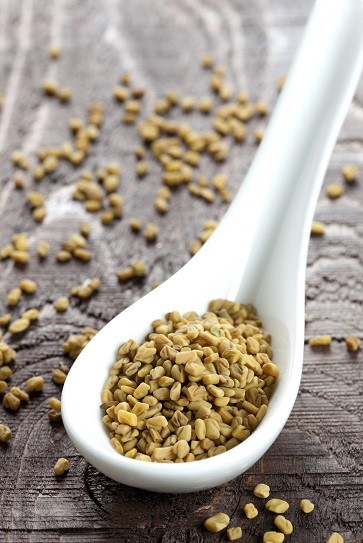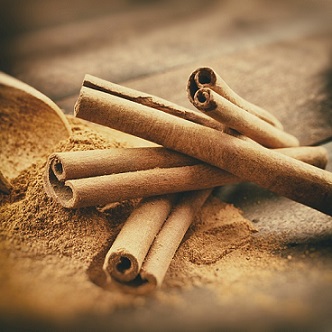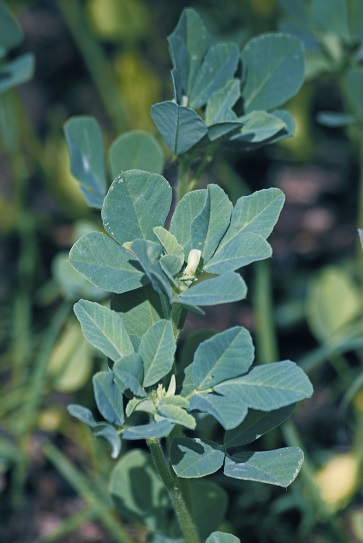 Fenugreek (trigonella foenum-graecum), the golden brown seeds of the fenugreek plant, is a moderately popular herbal supplement.
Fenugreek (trigonella foenum-graecum), the golden brown seeds of the fenugreek plant, is a moderately popular herbal supplement.
These seeds have a pungent aroma and a bitter taste, described as tasting like burnt celery. Fenugreek is used by Yemenite Jews to make a sauce called Hilbeh, by the Turkish to make a paste called cemen, and by Northern Egyptian Peasants to flavour pita bread.
Fenugreek also has an ancient history. Charred fenugreek seeds found in Tell Halal, Iraq were recently carbon dated to 4000BC, while seeds closely resembling fenugreek were discovered in the ancient tomb of Tutankhamun. Fenugreek seeds were fed to Roman livestock alongside clovers as far back as 200BC.
Today, over 80% of worldwide fenugreek production comes from India, and 80% of India’s production comes from Rajasthan. Other big exporters include France, Egypt, Argentina, Pakistan, turkey and Morocco.
It’s not used in the West much except for authentic Indian dishes, but the extract is used for marinades, butterscotch, imitation vanilla, rum, and maple syrup flavouring.
As for clearing acne, there no direct studies (UPDATE 12/05/20: there is now), but supposedly, fenugreek powders can control DHT and insulin.
They’re the two major hormones behind oily skin, so fenugreek sounds pretty promising, right?
Evidence for fenugreek lowering insulin is not conclusive
The folklore uses of fenugreek don’t stop at tasty recipes. For example, Middle Easterners use it for both weight loss, and packing on the pounds in patients who find weight gain impossible.
Fenugreek also contains a compound called diosgenin which helps new mothers to lactate, and according to some stories I’ve read, produce gallons after gallons of breast milk…
…and there’s one particularly promising tale. In Ethiopia, they use fenugreek for a delicious sounding spicy butter called nitter kibbeh. However, the seeds are also Ethiopia’s number one herbal medicine for type 2 diabetes. The ancient Indian School of Ayurvedic Medicine recommends the same thing.
The connection to acne is simple: diabetes is just hyper advanced insulin resistance, AKA impaired insulin sensitivity. Because your cells respond less to insulin, this forces your insulin levels upwards, which itself stimulates oily skin.
Read Annihilate Your Acne – get the ultimate diet for clear and glowing skin!
This coincides with a deluge of internet claims that fenugreek can stabilise blood sugar after a meal, reduce bloodstream insulin levels, and so on.
So naturally I decided to investigate the scientific evidence, but the results for acne patients are less than promising.
Firstly, 25 newly diagnosed diabetics were randomly divided into two groups, featuring one gram of fenugreek extract daily or a standard diet for diabetic care (2001 study). After two months, insulin sensitivity jumped, insulin resistance plummeted, and both blood glucose and insulin levels fell. There was also an increase in HDL, or “good” cholesterol and a fall in triglycerides. The scientists concluded that “fenugreek seeds improves glycaemic control and decreases insulin resistance in mild type-2 diabetic patients”. A promising study for acne.
Then there’s this 2009 study where scientists baked two loafs of bread: one with standard wheat based ingredients and one which was identical apart from added fenugreek. 8 diabetic patients received two slices of the breads.
Over 4 hours, both blood glucose and insulin were lower in the 5% fenugreek group. However, only insulin reached statistically significant levels. That’s our first indication that fenugreek is no miracle then.
This study tested fenugreek seeds themselves, rather than fenugreek extract. 24 diabetic people were fed 10 grams of fenugreek seeds daily, either mixed with an unspecified type of yoghurt or boiled in hot water.
After 8 weeks, the results were interesting again. The 11 hot water patients enjoyed a reduction in fasting glucose levels of 25%. In the yoghurt group, however, there was no effect whatsoever. Another positive result for fenugreek.
Finally, we have a resoundingly negative study. The experiment was well designed; a double blind, placebo controlled trial on humans, the gold standard of scientific research. 58 women with polycystic ovarian syndrome (PCOS) were randomly allocated to either a hydroalcoholic extract of fenugreek seeds in capsules with metformin (a blood sugar lowering drug), or metformin on its own.
The fenugreek had almost no benefit. There was no difference in blood sugar or insulin, the vital parameters for acne and oily skin. The insulin sensitivity of cells was also unchanged, ruling out more subtle long term benefits.
Analysis
So do fenugreek seeds lower insulin levels and thus acne? I cannot say at all.
Two cultures thousands of miles away from each other (India and Ethiopia) both concluded through sheer experience that it does work. Yet the negative study was perfectly designed, and the positive results contradict each other.
This study concluded that fenugreek inhibited the enzymes required to digest carbohydrates like amylase, mellowing the short term spike in blood sugar. However, the first positive study only found a difference in long term fasting glucose levels.
Fenugreek probably has some effect, but I cannot recommend its seeds for insulin unless you love them in your curries and meals anyway.
Do fenugreek seeds lower DHT levels?
 On the internet, few people love fenugreek seeds more than the hair loss community. On forums, fenugreek is discussed constantly, mainly because it can supposedly to inhibit the androgenic hormone DHT.
On the internet, few people love fenugreek seeds more than the hair loss community. On forums, fenugreek is discussed constantly, mainly because it can supposedly to inhibit the androgenic hormone DHT.
Likewise, fenugreek pills have burst onto muscle store shelves, claiming to fine-tune your anabolic hormones. As with insulin, DHT causes acne by stimulating your skin’s sebaceous glands to pump out more sebum (oil).
The hype originated from this promising 2009 study, where sceptical scientists fed 500mg of fenugreek each day to 45 resistance trained males. After 8 weeks, the stress hormone cortisol didn’t change. Neither did testosterone, disproving the advertised benefits, but DHT levels fell by 9.42% in the fenugreek group. In the placebo group, DHT levels increased by 5.98%.
However, another study found no effect on DHT whatsoever. 30 resistance trained men were fed 500mg of fenugreek extract for eight weeks. This time, their total and free testosterone levels did increase, by 6.57% and 12.26% above baseline respectively.
However, there was no difference in DHT levels. The scientists commented that fenugreek could be a 5-alpha reductase inhibitor, the enzyme that converts testosterone to DHT, which would definitely help acne. However, that’s irrelevant because DHT didn’t actually fall.
Vital reading: the top 6 vitamins and minerals for radiant and clear skin
This study gave fenugreek extract to 60 men aged between 25 and 52, twice daily. After six weeks, they enjoyed an overall positive effect on physiological aspects of sexual drive or desire for sexual activity. Somehow, the scientists managed to calculate an exact 25% increase in male sex drive.
Testosterone levels didn’t change. DHT wasn’t measured, but since DHT is the principle male hormone for sex drive, it almost certainly didn’t fall.
Basically, the evidence for fenugreek lowering DHT is even worse for that of insulin.
Furthermore, many of the studies were funded by a biotech start up called Indus Biotech. If you visit their website you’ll observe that they sell a fenugreek supplement called “Torabolic”. I wouldn’t recommend fenugreek even if it did work, because men require DHT for muscle mass and sex drive.
It’s clear that taking fenugreek for acne is an unsound move. Unless perhaps you’re a new mother who wants to produce vast quantities of milk, or is having trouble with lactation.
Fenugreek has one other fascinating power: changing your body odour. It’s well established by Ancient Egyptians in embalming ceremonies to make your body odour smell like maple syrup, of all things. Hence, why fenugreek is often used to flavour maple syrup.
Always cover the hormone optimising basics
 To lower insulin levels for acne, you don’t need supplements anyway, not at first. You need to follow the basic insulin strategy of eating less carbohydrates and getting more exercise.
To lower insulin levels for acne, you don’t need supplements anyway, not at first. You need to follow the basic insulin strategy of eating less carbohydrates and getting more exercise.
In the 1970s, anti-fat hysteria kicked off in full force; dairy products, eggs, and meats were blamed for high cholesterol and heart disease, and even cancer. Thanks to flawed studies, the World Health Organisation, the USDA, and British NHS suddenly declared saturated fat to be the devil itself.
Almost overnight, the US government’s infamous food pyramid recommended 6-11 servings of whole grains per day. Since the 1970s, average carbohydrate intake has risen by about 10-15% of our total dietary calories, and dietary fat has fallen by a similar quantity, with protein remaining equal…
Important article – the top 7 natural topical treatments for acne
…but the expected improvement in the western world’s health has not materialised. We’re fatter, sicker and weaker than ever. We only live longer because we’re kept alive by highly advanced pharmaceutical drugs.
In particular, type 2 diabetes has become an epidemic, and that’s a direct consequence of the “healthy” high-carb diets we’ve all been sold. Essentially, any carbohydrates you eat get converted to glycogen and stored in your muscle energy stores using insulin. That glycogen serves as hard fuel for exercise like rowing, weight lifting or skiing, but if you don’t expend it, the stores fill up. They automatically make themselves resistant to the hormone insulin.
Your pancreas pumps out more and more insulin to compensate. This loss of insulin sensitivity progresses further and further until one day, WHAM; your pancreas conks out and you’re no longer producing any insulin.
You’ve now reached type 2 diabetes. This disease affects 30 million US citizens and roughly 86 million are estimated to be pre-diabetic, with blood sugar dangerously close to diabetic levels.
Why does this matter for acne? Because it shows just how common insulin resistance and sky high insulin levels really are.
What you have to do then, before you consider fenugreek or any touted miracle pills, is fix your glycogen stores.
At first, you can eat a very low carb diet, to rapidly empty those glycogen stores and restore your insulin sensitivity. Replace your morning oatmeal and sugar packed breakfast cereal with two or three boiled eggs instead. Replace a digestive biscuit (10 carbs right there) with some acne-friendly, antioxidant packed dark chocolate.
Once insulin has fallen and your skin is less oily, you can increase your carbohydrate intake to moderate levels again, balanced with exercise. There’s even room for one daily sweet treat in this regimen.
Remember that the fear of saturated fat is completely overblown. Just last month (August 2015) a huge review of all the available studies concluded that “Saturated fat intake was not associated with all-cause mortality, CVD mortality, total CHD, ischemic stroke or type 2 diabetes”. Earlier in 2015, a review concluded that the original introduction of low fat, high carb guidelines was never supported by evidence.
The surge of heart disease after 1900 was not caused by saturated fat – Europeans had been eating butter for hundreds of years. It was the introduction of trans-fats in margarines and hydrogenated spreads (the original villain was Crisco back in 1910) that started the trend.
Conclusion
 There’s plenty of evidence that fenugreek seeds will cure acne, but there’s also plenty that they’ll be useless.
There’s plenty of evidence that fenugreek seeds will cure acne, but there’s also plenty that they’ll be useless.
Fenugreek isn’t an unhealthy food for acne, in fact it might aid weight loss and improve cholesterol levels. The breast milk generating power is pretty cool too, but you should undoubtedly look elsewhere for acne supplements.
Compared to fenugreek, a better supplement would be a cheap, long-lasting bulk bag of cinnamon. Just ¼ to ½ a tablespoon can lower blood glucose by 20%, and also lower insulin resistance.
Cinnamon directly enhances genes related to insulin sensitivity such as PPARy and RXR. Cinnamon is even active on insulin receptors in the brain. There’s way more evidence than for fenugreek. Just remember to buy ceylon cinnamon rather than cassia cinnamon.
NEXT: get the full skin-clearing diet and wave acne goodbye forever
Thanks for reading!

Fenugreek works well for my acne. Its just something you have to do in trial & error. I Aldo take in conjunction with 12g of msm. You have to try it for a significant amount time and come to your own conclusions. I personally believe some studies are not published or taken seriously because it takes money away from the pharmaceutical industry. Since they can’t gain control over herbs, of course they will do their best to debunk their effectiveness. That’s just my 2 cents. Have a blessed day!